Bordered by Gardena Boulevard and nestled between apartment buildings in a converted church in a gritty section of Gardena, a wild tomato seedling has sprouted from a corner of the compost heap at Environmental Charter Middle School, showing hope for the future.
Students Giovani Benitez and Kevin Luna just welcomed a wheelbarrow of food waste from neighborhood restaurant Yo Way Eatery and are turning it into mound of sawdust and hay that will both feed their community and make a small dent in climate change.
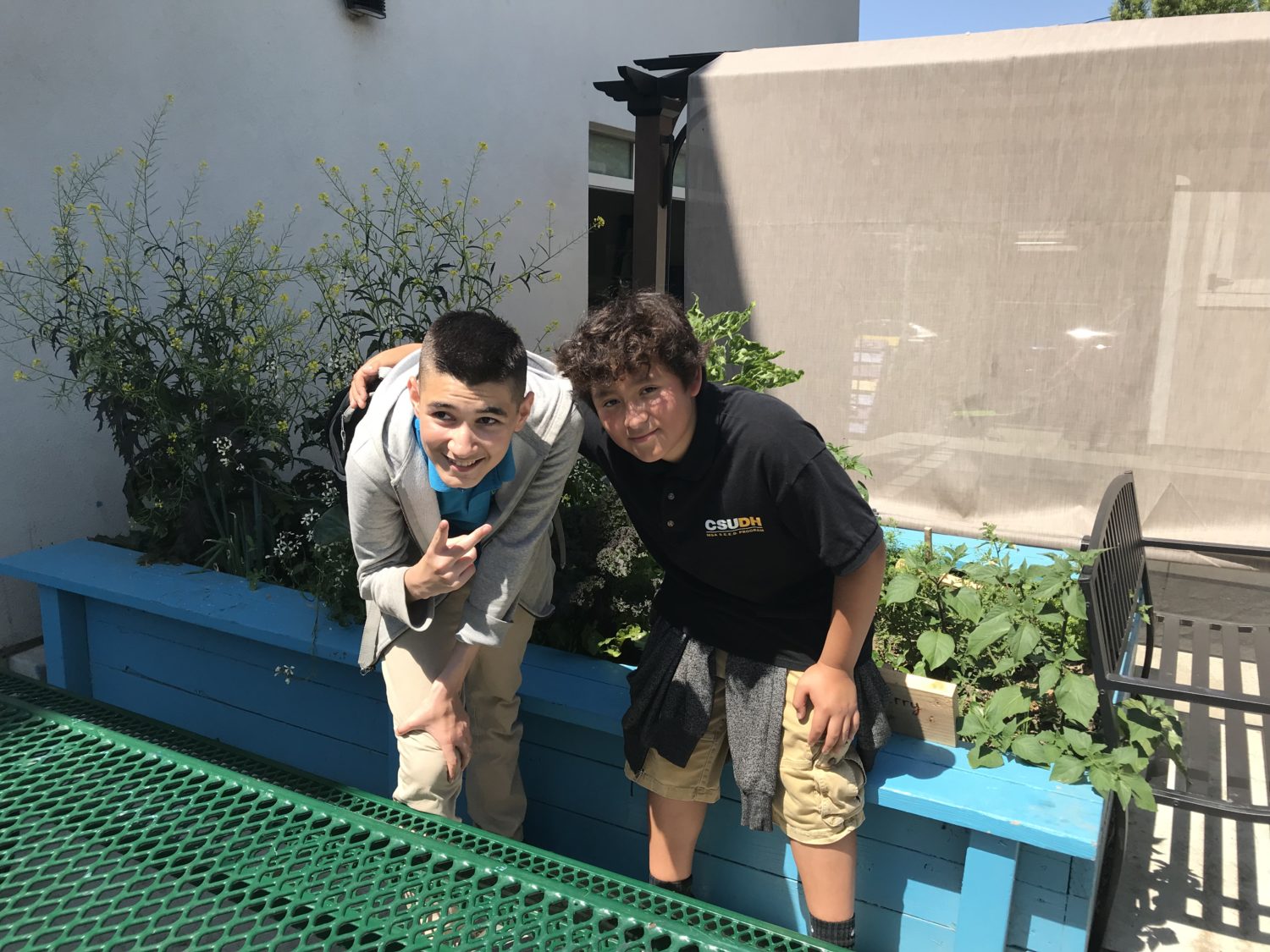
Giovanni Benitez and Kevin Luna on the campus rooftop garden (Michele Stueven)
The Table to Farm Composting project at the ECS schools in South Los Angeles is a waste reduction pilot program, which started in Inglewood, that combats methane generated by landfills by connecting restaurants with compost hubs, urban farms and community gardens for a multifaceted food waste reduction program. The high school and middle school have become compost hubs for the community and their own gardens, building their own bins and raised beds from recycled wood they have collected.
Tyler Kenney, who teaches the required “Green Ambassadors” specialty class on environmental justice loves to talk trash.
“All of this comes from multiple sources,” Kenney tells L.A. Weekly while dodging hummingbirds in the urban oasis. “Students do a lot of composting during lunch and breakfast. Our compost is set up so that we get a lot of nitrogen from the students’ lunches. To get the right carbon nitrogen ratio, we also use hay and sawdust donated from Angel City Lumber. They collect fallen trees all over L.A. County which would otherwise go to the landfill. So not only are we rescuing food, we’re rescuing the sawdust that would have ended up in the landfill.”
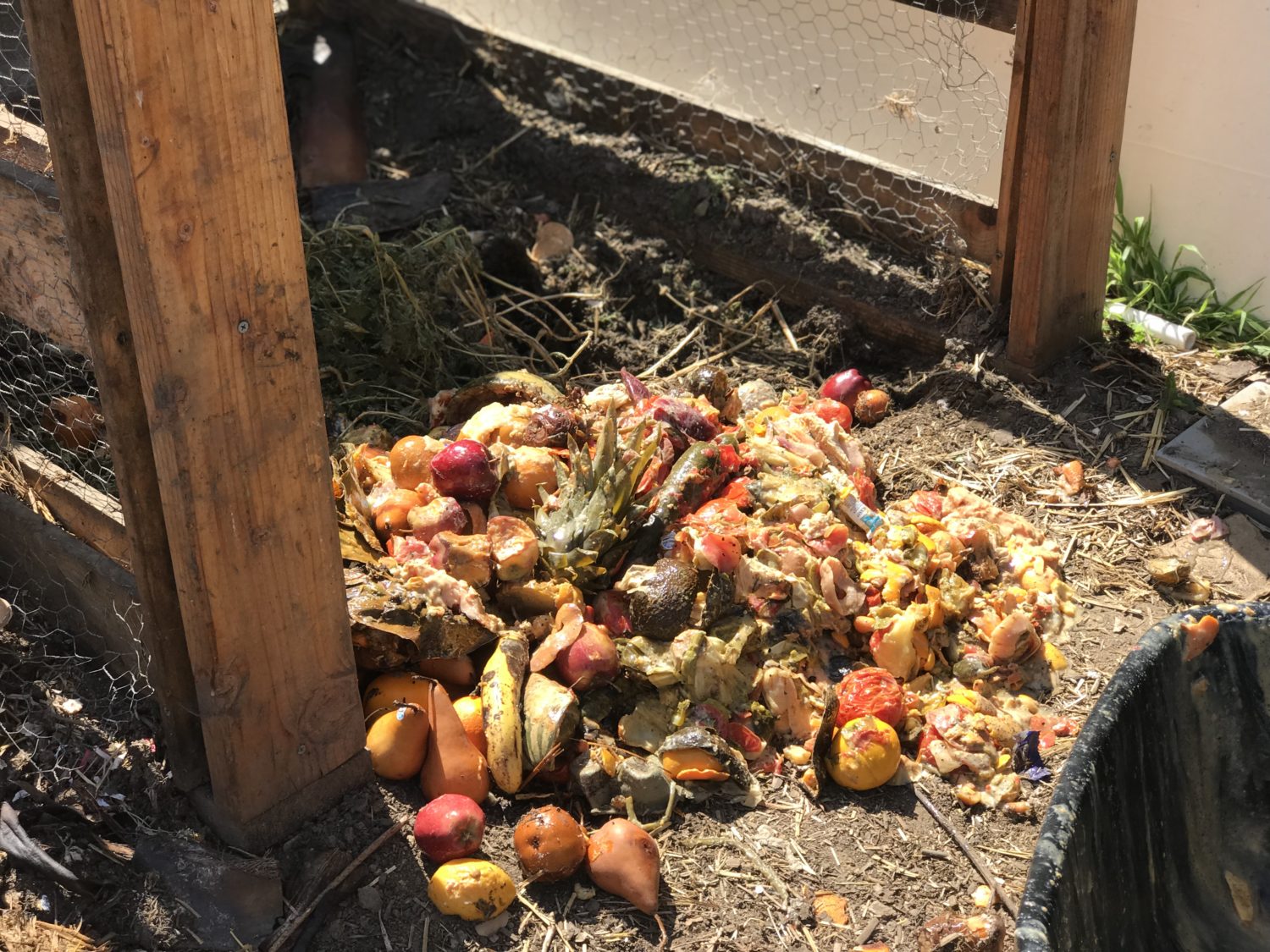
One good turn deserves another (Michele Stueven)
The Bay Foundation (distinct from “Heal The Bay”) developed the program, which grew out of their Clean Bay Restaurant program. The organization’s focus is the Santa Monica Bay and efforts to avert trash going through storm drains into the ocean. It also works to educate boaters on how to keep the bay clean.
Currently, five restaurants are participating in Table to Farm. Mango Tango Juice Bar and Grill delivers food waste to ECS Middle school in Inglewood, and Pacific Rim Thai Kitchen and Crepe Heaven Play Café to the high school in Lawndale. Not only does Yo Way Eatery donate their scraps to ECS for the compost heap, but the owner was inspired by the students’ passion and dedication to help build raised garden beds at his restaurant and is growing food he can use for his menu. In return, the school is giving Yo Way seedlings and sprouts grown in the campus greenhouse.
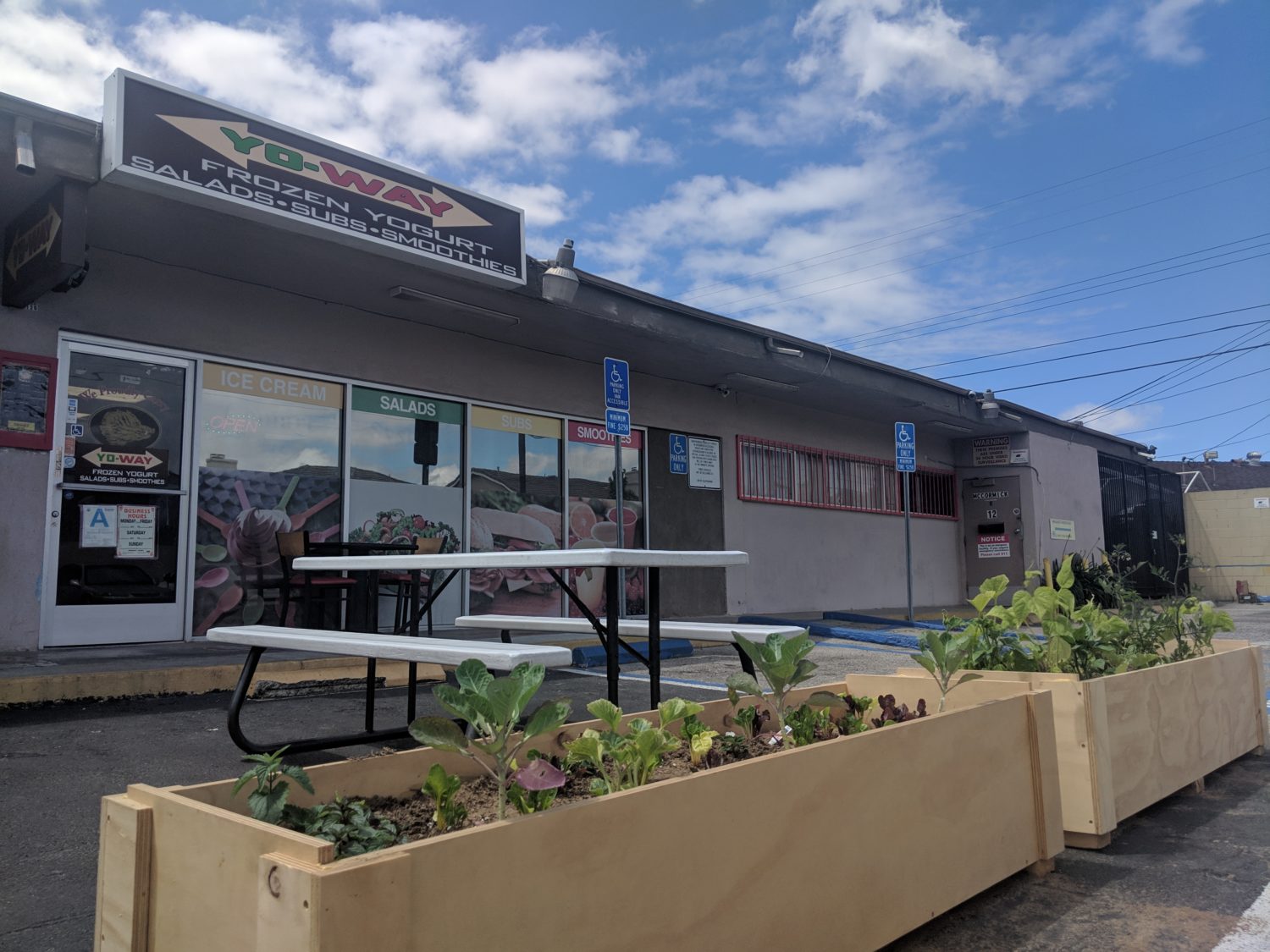
Yo Way Eatery (Kim Riley)
“One of the things we learn in our science class is natural selection, evolution and adaptation,” Benitez tells L.A. Weekly while turning a fluffy nitrogen/carbon mix ready to be spread over the campus vegetable garden.
“We learned that natural selection is something that when the earth changes it can affect us and all the organisms on the planet,” says the 8th grader, “ If we’re changing the earth, natural selection is going to come into play and affect us in some way. If my generation is burdened with this problem, we’re going to find a way to fix it. Right now the people with the power and the money don’t realize it’s wrong, but eventually they will. I really think we will come up with a solution. It’s not just the food waste that’s causing all the global warming, but also animal agriculture.”
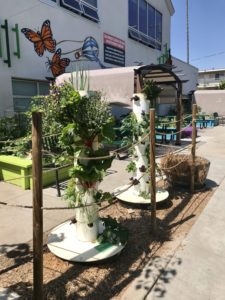
Environmental Charter Middle School
In addition to the immersive experience in science, students hone their math skills by building the compost bins and raised bed vegetable gardens, learning how to use tools safely, drilling the screws and putting the wood together. Linseed oil is applied to protect the wood and avoid decomposition. The Bay Foundation came in and helped build these with the teachers, staff and kids. They put the chicken wire in themselves.
The kids will go out into the community with Kenney and the community will allow them to use their parkways and sidewalk strips to grow vegetables. There are neighborhood beautification days every other month when parents, students, staff members come and walk down Gardena Boulevard and the perimeter picking up trash. Discarded furniture from the curbs is hauled back to campus and dissembled to make raised beds.
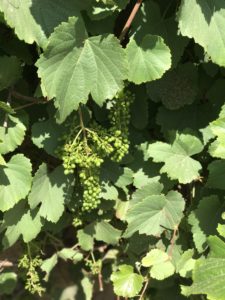
“We’ve learned about gentrification, indigenous rights and the history of native fruits and what they meant to people’s cultures,” says Benitez who plans a career in environmental justice. “What I really like about this school is that it’s special. Any other school just focuses on competing for good grades. This school pushes you and teaches you that if you want to get things right and done you have to do it yourself. It’s teaching us about our future and the environment we sleep in and wake up in.”
The ECS free network of public schools maintains a regular college prep curriculum, is ranked in the top 10 percent of schools, and 97 percent of its high school seniors are accepted into four-year colleges across the country, including Princeton, Yale, UC Berkeley and nearby Loyola Marymount University.
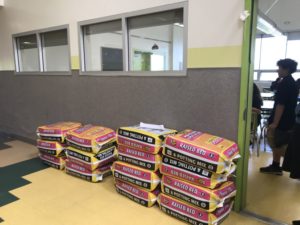
Environmental Charter School
“We feel like we’re creating a change in the world,” says Luna as he throws his lunch scraps on the compost pile. “Instead of throwing out trash and creating a bunch of methane, we learn how to use it to feed plants and try to keep the gasses down for our future. Did you know that half the CO2 in the air is caused by cow farts?!”
Spoken like a true 8th grader.
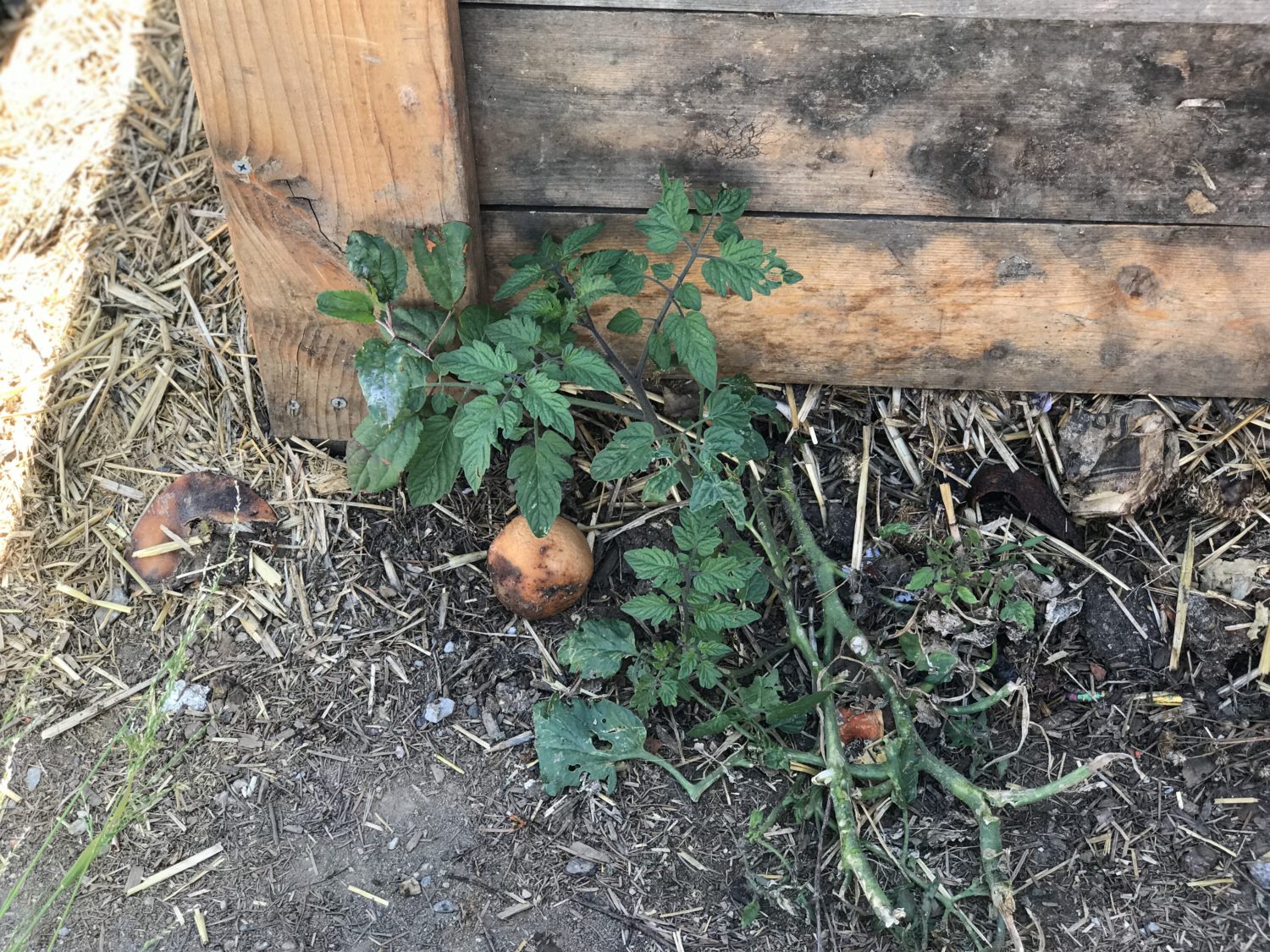
Advertising disclosure: We may receive compensation for some of the links in our stories. Thank you for supporting LA Weekly and our advertisers.

